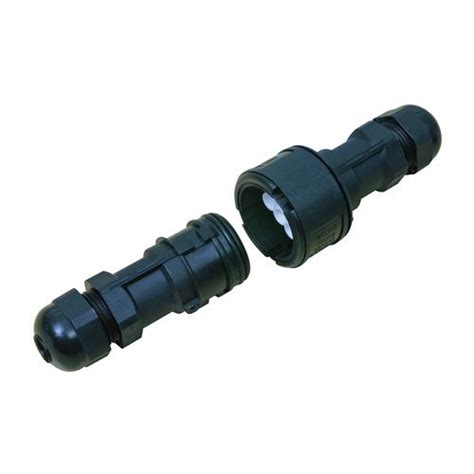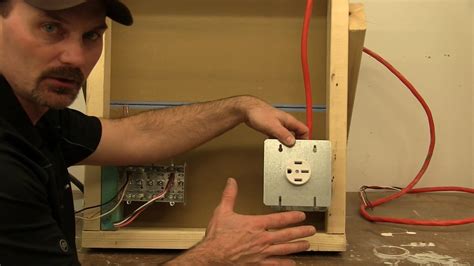240v junction boxes However, you can make the junction box be dual-purpose. For instance, the best way to conceal such a junction box is to use a large, deep 4-11/16" square metal box (which you need for the cubic inches), then stick a 2-gang "mud ring" on it, then stick plain 120V receptacles or switches there, fed by totally separate 120V / #12 wires.
The TICONN Waterproof Electrical Junction Box is made of high-quality ABS plastic that provides excellent impact resistance and electrical insulation. It has an IP67 rating, which means it is completely protected from .
0 · waterproof electrical connectors 240v
1 · electrical box for 240v range
2 · b&q electrical junction box
3 · 240v junction box wiring
4 · 240 volt junction box
5 · 240 volt electrical junction box
6 · 240 volt breaker box
7 · 240 amp breaker box
SELHOT's plastic power distribution boxes (plastic distribution boards) are impact and oxidation resistant, making them ideal for use in waterproof and dustproof environments.
For instance, the best way to conceal such a junction box is to use a large, deep 4-11/16" square metal box (which you need for the cubic inches), .Find the Right Breaker Box for Your Home at Lowe’s. Breaker boxes are the main electrical hubs in a home, housing circuit breakers that keep outlets and fixtures safely supplied with power. .2.729.00
7.00 However, you can make the junction box be dual-purpose. For instance, the best way to conceal such a junction box is to use a large, deep 4-11/16" square metal box (which you need for the cubic inches), then stick a 2-gang "mud ring" on it, then stick plain 120V receptacles or switches there, fed by totally separate 120V / #12 wires.
Plastic doesn't generally need a knockout, but a larger wire (in the US, 240v wire is 3-line cable, which means its larger) will have a harder time going into the box past the plastic barbs that are designed to hold the wire in place. You can buy plastic boxes without barbs, but you'll have to secure the wire within 8" or so of the box. About the only time you can't (practically speaking) use a junction box is for the ground wire from the main panel to the ground rod and/or water pipe. From a practical standpoint, junctions on really big wire (e.g., 100A for a big subpanel) are a bit more of a problem because you can't use cheap little wire nuts.
waterproof electrical connectors 240v

They even make boxes that are "specially" designed for this purpose. If you use a 2-gang box, you'll want to get a faceplate that is designed to match (faceplates for NEMA 14-30 receptacles are also manufactured for 1-gang boxes). My other thought is to just move the NEMA 10-30 outlet (or install a new NEMA 14-30) to the garage and use the existing outlet box as a junction box to tie-in the new cables. Then close the laundry room box up with a blank faceplate so it won't be usable anymore. I would then use the newly installed garage outlet for the car charging. There needs to be a junction box in the wall or mounted to the wall. I recommend a 4-11/16" steel square box because it has lots of room for future expansion, but a 4" square by 2-1/8" deep box will also suffice. This is high current stuff that will arc spectaularly, so it's no time to be fooling with plastic boxes.
Of course, if you care to modify your interpretation to include the breaker boxes along the way that DO provide the current limiting, "adding breaker boxes and junction boxes to one main line of power" is exactly what your house and even neighborhood power system looks like. There just happen to be a larger number of branches at a few breaker .
Electrical - AC & DC - 240v to 120v in junction box? - The power for the microwave is on a 20 amp circuit that starts off on a 240v cable, gets converted into a 120v (12g) cable in a junction box, where it then goes to connect to the microwave. Otherwise, I'm looking to go with PVC junction boxes, PVC outlet covers and PVC conduit/protective sleeves. So here are my 3 outlets. We have a NEMA 14-30 240V 30A outlet that will be getting a (240v) GFCI breaker at the panel. Then we have two (2) 3-pronged duplex outlets (20A 125VAC). This home has a PVC pipe running from outside the garage, to a pool+spa setup. The electrical circuit seems to be carrying 240V/60A - (primarily for the water heater). It runs on the ground beside a concrete slab for about 20feet and then it runs along the fence for 100 ft, ON the ground all the way. However, you can make the junction box be dual-purpose. For instance, the best way to conceal such a junction box is to use a large, deep 4-11/16" square metal box (which you need for the cubic inches), then stick a 2-gang "mud ring" on it, then stick plain 120V receptacles or switches there, fed by totally separate 120V / #12 wires.
Plastic doesn't generally need a knockout, but a larger wire (in the US, 240v wire is 3-line cable, which means its larger) will have a harder time going into the box past the plastic barbs that are designed to hold the wire in place. You can buy plastic boxes without barbs, but you'll have to secure the wire within 8" or so of the box. About the only time you can't (practically speaking) use a junction box is for the ground wire from the main panel to the ground rod and/or water pipe. From a practical standpoint, junctions on really big wire (e.g., 100A for a big subpanel) are a bit more of a problem because you can't use cheap little wire nuts. They even make boxes that are "specially" designed for this purpose. If you use a 2-gang box, you'll want to get a faceplate that is designed to match (faceplates for NEMA 14-30 receptacles are also manufactured for 1-gang boxes).
My other thought is to just move the NEMA 10-30 outlet (or install a new NEMA 14-30) to the garage and use the existing outlet box as a junction box to tie-in the new cables. Then close the laundry room box up with a blank faceplate so it won't be usable anymore. I would then use the newly installed garage outlet for the car charging. There needs to be a junction box in the wall or mounted to the wall. I recommend a 4-11/16" steel square box because it has lots of room for future expansion, but a 4" square by 2-1/8" deep box will also suffice. This is high current stuff that will arc spectaularly, so it's no time to be fooling with plastic boxes. Of course, if you care to modify your interpretation to include the breaker boxes along the way that DO provide the current limiting, "adding breaker boxes and junction boxes to one main line of power" is exactly what your house and even neighborhood power system looks like. There just happen to be a larger number of branches at a few breaker .
Electrical - AC & DC - 240v to 120v in junction box? - The power for the microwave is on a 20 amp circuit that starts off on a 240v cable, gets converted into a 120v (12g) cable in a junction box, where it then goes to connect to the microwave.
Otherwise, I'm looking to go with PVC junction boxes, PVC outlet covers and PVC conduit/protective sleeves. So here are my 3 outlets. We have a NEMA 14-30 240V 30A outlet that will be getting a (240v) GFCI breaker at the panel. Then we have two (2) 3-pronged duplex outlets (20A 125VAC).
electrical box for 240v range

how to mig weld sheet metal flux core
b&q electrical junction box
About this item . IP68 Waterproof: The Helunsi 3 way junction box is of IP68 high-level waterproof class, weatherproof, moisture-proof, dust-proof and anti-UV, making it safe to use in the sun, wet environment, rainy or snowy days, .
240v junction boxes|240 volt junction box